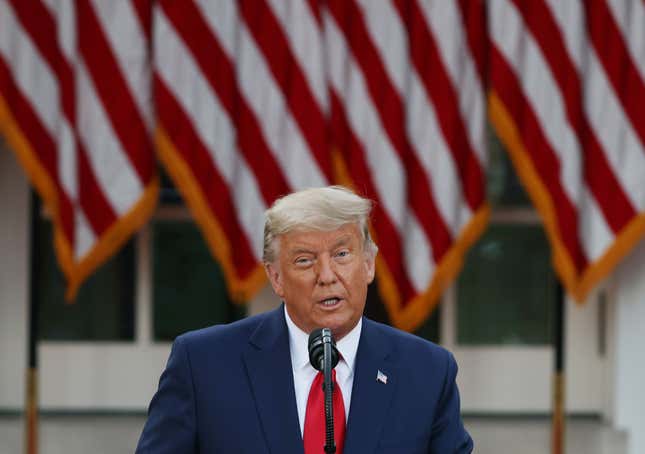Trump Reportedly Planning Some Unhinged Shit for His Final Months in Office
Latest

The president still hasn’t formally conceded the election, but that hasn’t stopped him from making plans for his final months in office, a paradox I’m sure quantum physicists will be puzzling over for decades to come.
Trump intends to enact a series of “hardline” policies targeting China during his remaining time as president, in attempts to make it “politically untenable for the Biden administration to change course,” according to Axios. These include additional sanctions and restrictions on trade with Chinese companies and crackdowns on the country in response to its forced labor practices.
-

-

-

-

-

-

-

-

-

-

-

-

-

-

-

-

-

-

-

-

-

-

-

-

-

-

-

-

-

-

-

-

-

-

-

-

-

-

-

-








































